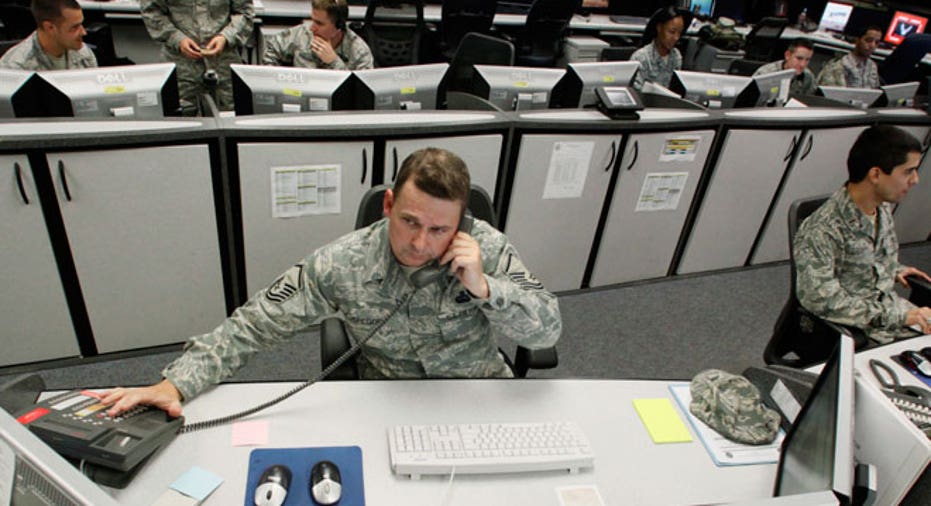Veterans' Search for Employment Could Get a Lot Tougher

When Army Human Intelligence Collector Travis Hall came back from Afghanistan in 2011, he wasted no time launching into his civilian job hunt. During his one-day layover in Baltimore before heading home to Texas, he decided to head to Capitol Hill in search for work.
It was the beginning of a long journey.
“I put on my uniform and my boots, which still had dirt from Afghanistan in them, and I walked into the office of a former congressman I used to work for and introduced myself to the staff,” he recalls. He was given a tour of the Capitol and even met the chairman of the House Armed Services Committee.
But his excursion proved unsuccessful. In fact, Hall would spend a full year in Washington, D.C. trying to find work. He was looking for a long-term career, but struggled to find it.
“I entered the army right out of college. That is the time when most graduates are getting their entry-level experience that so many employers demand right now. So when I came out of the army, I felt like I was working at a deficit because I didn’t have that experience on my resume.”
Hall’s plight to find employment after leaving the military is common. The labor market’s unsteady recovery has left millions of Americans unemployed, and experts say hiring prospects for veterans could get even more bleak.
The overall unemployment rate for veterans who have served on active duty at any time since September 2001 ticked down to 9% in 2013. The country’s overall unemployment rate stands at 6.7%.
“Businesses realize it’s our patriotic duty to help our veterans, but they still have a business to run,” says Dan Goldenberg, executive director of Call of Duty Endowment. “They will wave the flag and clap in support, but they still feel like it’s a risk hiring a veteran.”
The unemployment numbers are even worse for young veterans. In 2013, 21.4% of veterans ages 18-24 couldn't find work--and it’s about to get a lot worse.
“The young vets that are coming back now from wars are our most vulnerable, and their unemployment rate continues to increase,” says Goldenberg. “And we are about to dump a lot more into the labor market through the troop drawdown.” He adds the overall unemployment rate for the he non-veteran population of the same age bracket is 14.3%.
In response to a nearly trillion-dollar budget cut over the next decade, Defense Secretary Chuck Hagel said last month that the Pentagon plans to reduce the size of the country’s military. The Army alone faces reductions between 440,000 and 450,000 soldiers.
“The most conservative estimates say 100,000 members will involuntarily be let into the workforce, that is a best case scenario,” says Goldenberg.
All of these soldiers will now be looking for new jobs as civilians in an already-tight market.
“Veterans often find it difficult to communicate their skill set. When you’ve done two, three, four deployments, the skills that you gain are unmatchable, but conveying your value to employers who don’t understand that environment is difficult,” explains Brian Stann, CEO Hire Heroes USA.
Hall worked with non-profit Corporate America Supports You in September 2013 and landed full time work at Zachry Holdings in Texas just two months later.
Stereotypes are another hurdle that veteran job seekers have to overcome. “Employers fear that vets lack creativity, won’t assimilate to the work culture and fear PTS,” said Goldenberg.
Hall began looking for a job as soon as he was back in the U.S., but Goldenberg says the process needs to start earlier than that. “We spend six to eight weeks indoctrinating them in the military way, but the time spent working with them when they are leaving is far less. We need a reverse boot camp.”
He is most worried about the 30 and younger veterans. “People often write them off saying they need down time, but I totally disagree. When you go from being part of a group with a mission and close friends and then you become isolated in your search, that’s where we get into trouble.”
Many soldiers enlisted right after high school, which adds to their struggle to find work. “Imagine what it’s like if you’ve never written a resume. Here you are, you volunteered to serve your country and now you are tasked with learning a new game and new language,” Stann says.
Stann’s agency takes a one-on-one approach with veterans transitioning into the working world. “When you look at the demographic of men and women in the military, it’s not those that come from rich families that enlist,” he says. “They are all different and unique, they need to have individual plans to get out there.” He says the staff helps soldiers craft their skill set, identify job opportunities and teach them how to write a resume, interact on interviews and how to network.
Goldberg points to numerous studies that show the benefits of hiring a vet. “They are more productive, they are loyal, they aren’t afraid to be a leader and work well as a team. It just makes good business step. But all that gets trumped by perceptions.”



















